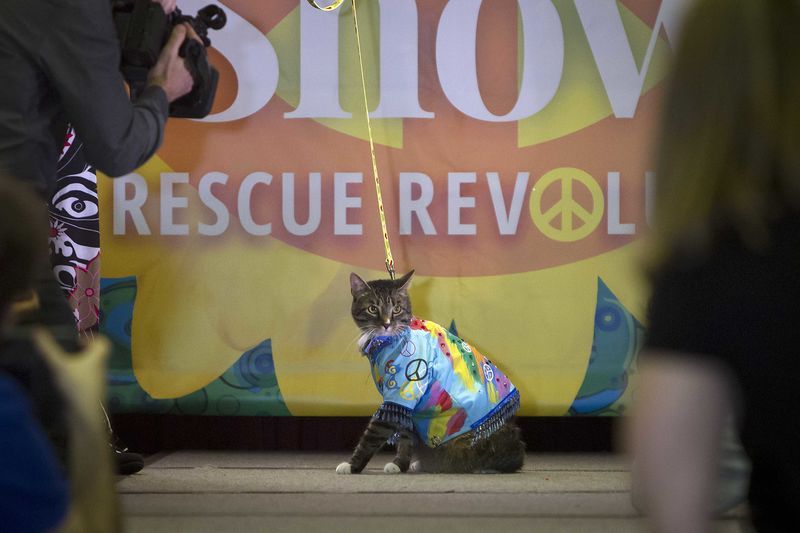By Marcus E. Howard
NEW YORK (Reuters) - Americans' attachment to their pets has fostered a $60 billion industry that is producing best-in-breed stock performance.
Shares of a clutch of companies that sell pet food, develop diagnostic tests for animals and offer veterinary care have far outrun the wider market this year, delivering an average total return of nearly 35 percent versus around 8.3 percent for the Standard & Poor's 500 (SPX).
Shares of animal health testing company Idexx Laboratories Inc (O:IDXX), for example, have skyrocketed more than 50 percent this year, while vet clinic operator VCA Inc (O:WOOF) is up 31 percent and pet food maker Blue Buffalo Pet Products Inc (O:BUFF) is up 40 percent.
"What you see driving that growth is the humanization of pets and consumers' willingness to spend on their pets very heavily," said Joe Edelstein, an analyst at Stephens Inc. "Part of that is because pets are part of the family."
Edelstein follows Blue Buffalo and rival Freshpet Inc (O:FRPT), which is up 25 percent in 2016.
Last year, U.S. pet-related spending totaled a record $60.3 billion, a 3.9 percent increase over the previous year, according to the American Pet Products Association.
According to the U.S. Bureau of Economic Analysis, U.S. consumers' spending on their pets rose 5 percent in inflation-adjusted terms last year while overall consumer spending rose 3.2 percent. It was the fourth straight year that growth in spending on pet services and products exceeded growth of consumer spending overall.
Blue Buffalo and Freshpet are representative of the success of pet food, the industry's leading source of revenue, and are making the most of the trend toward natural, locally sourced ingredients.
"We see continued growth of 'better-for-them' pet food products in both cat and dog," said Phil Terpolilli, a Wedbush Securities analyst. "Adoptions in U.S. dogs continue to grow meaningfully."
PRICED TO PURR-FECTION?
The surge in the stock prices has lifted price-to-earnings ratios for the group, leaving investors to wonder just how much further the puppies have to run.
Idexx shares now trade at about 43 times analysts' estimates of its earnings for the next 12 months, their highest level in about 20 years.
It is not alone. The comparable price-to-earnings multiple of Heska Corp (O:HSKA), a maker of animal lab testing products, is 41 compared with a five-year median of 35. VCA's is 22.6 versus a five-year median of 16.8. Blue Buffalo and Freshpet, which both have fewer than two years on the public market, trade at multiples of 31 and 115, respectively.
Big investors appear to be staying put, though. A review of the top 20 shareholders in eight companies in the pet market at the end of the second quarter showed that a majority added to or retained their positions in those stocks.
Only Heska saw more of its top investors pare back positions than add to them, although none of the changes were large. Its shares are up 30 percent this year.
"We continually look at our names, the results and our expectations, and as long as we think they warrant the multiple that we've paid for the stock, we're going to be owners," said Jarl Ginsberg, portfolio manager of the Columbia Small/Mid Cap Value Fund that owns shares of VCA, the vet clinic chain.
One company that may catch the eye of investors is Zoetis Inc (N:ZTS), one of the world's largest animal health companies and the weakest performer of the group this year.
Shares of the company, which spun off from Pfizer Inc (N:PFE) in 2013, have gained around 7 percent so far this year. But they do not feature the same valuation risks, trading at about 24 times estimated earnings for the next 12 months, just above the long-term median of 22.8.
Zoetis is increasing its earnings and revenues well above broader pet healthcare spending trends, said investor James Tierney Jr., chief investment officer at money manager AB's Concentrated US Growth fund.

"This is a company that should post 14 percent earnings growth over the 2013 to 2017 time frame," he said. "This is a time period where the broader market, meaning the S&P, has had modest growth, if any."